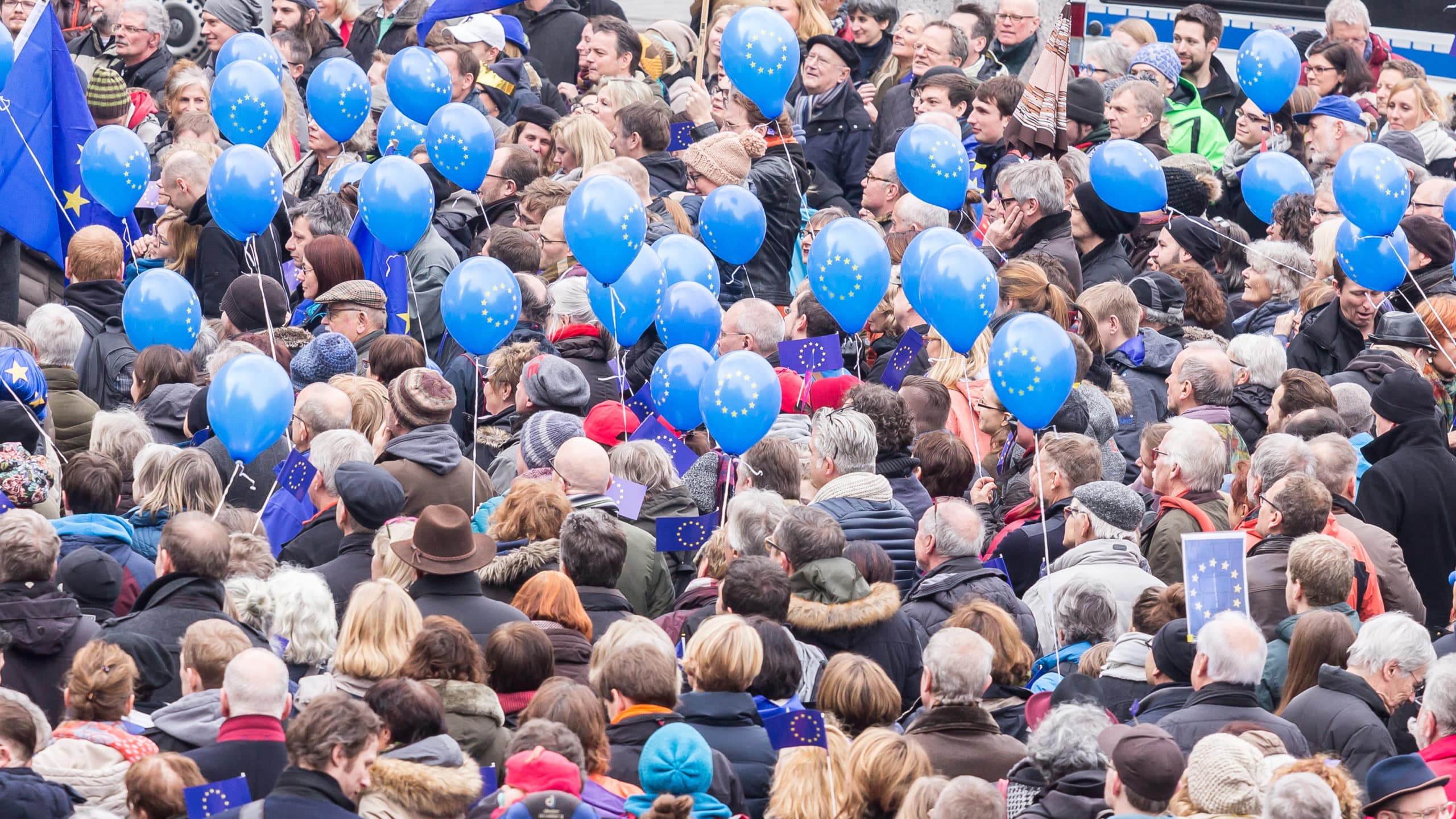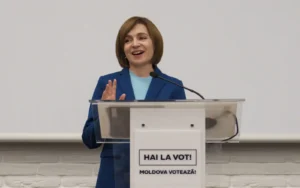(Source: Raimond Spekking)
For the election preview take a look here.
On Sunday 28 September 2025, Moldova held snap parliamentary elections, called after the collapse of Prime Minister Dorin Recean’s government. As anticipated in the election preview, the vote turned into a test of the country’s pro-European trajectory and the ability of the ruling Party of Action and Solidarity (PAS) to maintain its dominant position.
According to the Central Electoral Commission (CEC), turnout stood at around 53%, close to the 2024 presidential elections. More than 3.3 million Moldovans were eligible to vote, including the large diaspora, which cast ballots in over 300 overseas polling stations. International observers from the OSCE/ODIHR and domestic NGO Promo-LEX assessed the election as competitive and generally well-administered, despite reports of isolated irregularities. Irregularities included bomb scares in polling stations in Romania, Spain, Italy and the US.
Additionally, on the Friday before the elections two pro-Russian parties, Heart of Moldova and Moldova Mare, were banned from taking part in the elections due to alleges of illegal financing, voter bribery and undeclared foreign funds. The decision to bar Heart of Moldova followed a Court of Appeal decision that restricted the parties activities for 12 months and accusations of money laundering, illicit financing and attempts to bribe voters. The Heart of Moldova party formed part of the BEP coalition, however BEP was given 24 hours to readjust their candidate list. Moldova Mare was barred due to possible vote-buying, hidden financing from abroad and its involvement in what it called a “camouflaged electoral bloc” linked to a banned party.
Moreover, on the Friday before the elections two pro-Russian parties, Heart of Moldova and Moldova Mare, were barred from participating. Heart of Moldova, which was part of the BEP coalition, was suspended for 12 months following a Court of Appeal ruling and now barred from elections due to money laundering, illicit financing and attempts to bribe voters. BEP was given 24 hours to adjust its candidate list. Moldova Mare was excluded over suspected vote-buying, hidden foreign funding, and its role in what authorities described as a “camouflaged electoral bloc” linked to a previously banned party.
Results
Preliminary results confirmed a victory for PAS, though short of the commanding majority it achieved in 2021. The party secured just above 50.20% of the vote, translating into about 55 seats in the 101-seat parliament. This outcome ensures PAS remains the leading political force with the ability to govern alone, which is beneficial as a coalition could have caused political instability. PAS garnered support from 78.61% of diaspora, showing the general inclination for diaspora to vote pro-EU as opposed to pro-Russian.
The Patriotic Electoral Bloc (BEP), led by former president Igor Dodon and uniting the Socialists and Communists, emerged as the main challenger with roughly a quarter of the vote, 24.20%. Our Party (PN), under populist leader Renato Usatîi, also cleared the threshold with 6.20%, capitalising on discontent with established parties. The Alternative Bloc (BEA), launched in early 2025 by Chișinău mayor Ion Ceban, entered parliament with a modest share of seats, gaining 7.96% of votes. The European Social Democratic Party (PSDE) failed to secure representation, with only getting 0.95% of votes.
Political Implications
The result largely confirms the dynamics outlined before the vote: PAS remains the strongest force but faces the challenge of a decline in support. The most likely scenario is a PAS-led majority government with a possible coalition with BEA, which shares a nominally pro-European orientation, though doubts persist about its consistency. An opposition arrangement centred on the pro-Russian BEP is arithmetically possible but politically less viable given Moldova’s clear pro-EU public mandate.
Internationally, the outcome is regarded as a boost for Moldova’s European aspirations The result strengthens President Maia Sandu’s hand in negotiations with Brussels and signals a further distancing from Moscow’s orbit. At the same time, persistent economic challenges, energy insecurity, and the risk of external interference mean the new government will face immediate tests in turning electoral momentum into durable progress on reforms and EU integration.
Written by Elene Amiranashvili



